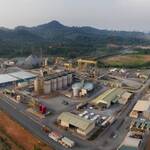The Ghana Chamber of Mines’ gold-producing member companies made a significant impact on the national economy in 2023, contributing over GH₵11.6 billion in fiscal payments to the state.
This figure underscores the mining sector’s role as a major driver of economic growth and highlights its commitment to transparency in resource management.
Fiscal contributions breakdown
The fiscal payments included GH₵7.4 billion in corporate income tax, GH₵2.7 billion in royalties, and GH₵1.3 billion in employee income tax.
Additionally, dividends paid totaled GH₵139 million, while contributions from self-employed contractors amounted to GH₵963,575.
These payments reflect the sector’s adherence to the “Publish What You Pay” initiative, ensuring that the benefits of Ghana’s mineral wealth reach all citizens.
Revenue generation and forex repatriation
The total revenue generated by the Chamber’s producing members amounted to $5.8 billion in 2023.
Out of this, $4.2 billion was repatriated into Ghana through commercial banks and the Bank of Ghana (BoG), representing 71.3% of total forex earnings.
While this was slightly lower than the 73% repatriation rate in 2022, the contributions significantly bolstered the country’s forex reserves.
Through the Bank of Ghana’s Mandatory Surrender Requirement (MSR), the mining companies sold $784 million in forex to the central bank.
An additional $716.97 million was sold under the BoG’s Forex Purchase Programme, further supporting the national economy.
Boost to gold reserves
The Bank of Ghana’s Domestic Gold Purchase Programme (DGPP) saw remarkable growth in 2023.
The volume of gold sold to the central bank increased from 93,799 ounces in 2022 to 447,492 ounces in 2023, marking a staggering growth rate of 377.1%.
This initiative plays a crucial role in strengthening Ghana’s gold reserves and enhancing economic stability.
Local expenditure and job creation
In 2023, the mining companies’ local expenditure totaled $3.1 billion.
This included $2.4 billion spent on goods and services excluding diesel and electricity, $274 million on electricity, and $384 million on diesel.
Key expenditures
Other key expenditures included $162 million on loan amortization and interest payments, $306 million on imported consumables, and $804 million on capital investments.
12,588 employees
The sector directly employed 12,588 people, including 86 expatriates and 12,502 local staff.
$612m for compensation
Employee compensation amounted to $612 million, underscoring the mining sector’s role in providing stable livelihoods and supporting household incomes.
Decline in gold production
Gold production by Chamber members decreased by 6.1% in 2023, with 2.86 million ounces produced compared to over 3 million ounces in 2022.
Despite this decline, the sector remains a cornerstone of Ghana’s economic framework.
A transparent and strategic sector
The Ghana Chamber of Mines continues to demonstrate its commitment to economic development, transparency, and strategic investment.
Through initiatives such as the DGPP and the BoG’s Forex Purchase Programme, the sector remains an essential partner in building a sustainable and resilient economy for Ghana.
- Thursday, April 24, 2025 Newspaper Headlines - 24 April 2025
- Govt grants Gold fields 12 months to handover Damang Mine - 23 April 2025
- African Central Bankers demand fair global debt support - 23 April 2025




